
Newsletter Subscribe
Enter your email address below and subscribe to our newsletter

Enter your email address below and subscribe to our newsletter
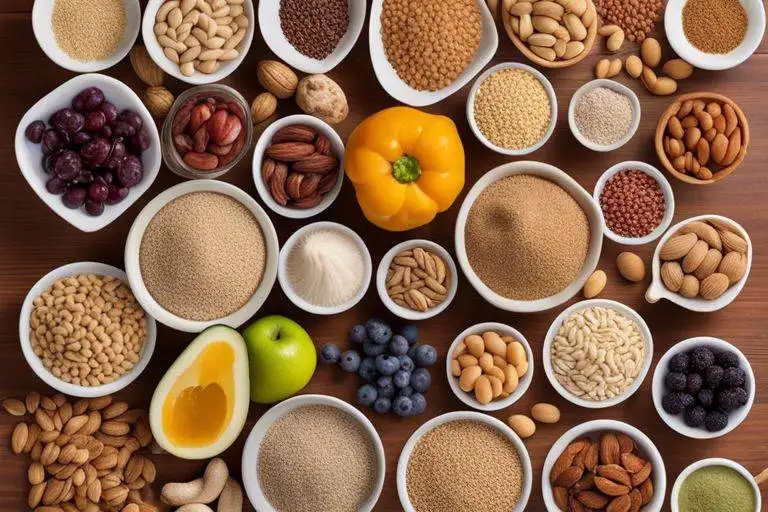
Feeding your gut fiber is like fueling a bustling community of beneficial bacteria, crucial for your digestive health and overall well-being. As Michael Pollan wisely says, “Eat food, not too much, mostly plants.” Incorporating a variety of fiber-rich foods such as whole grains, fruits, vegetables, and legumes into your diet is key to nurturing a diverse microbiome that supports immunity, digestion, and even mental health. Let’s investigate into the wonders of fiber and its vital role in keeping your gut happy and healthy.
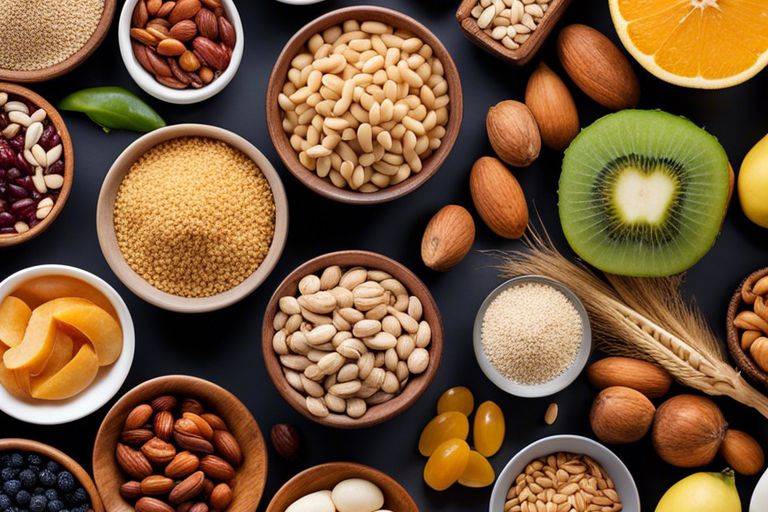
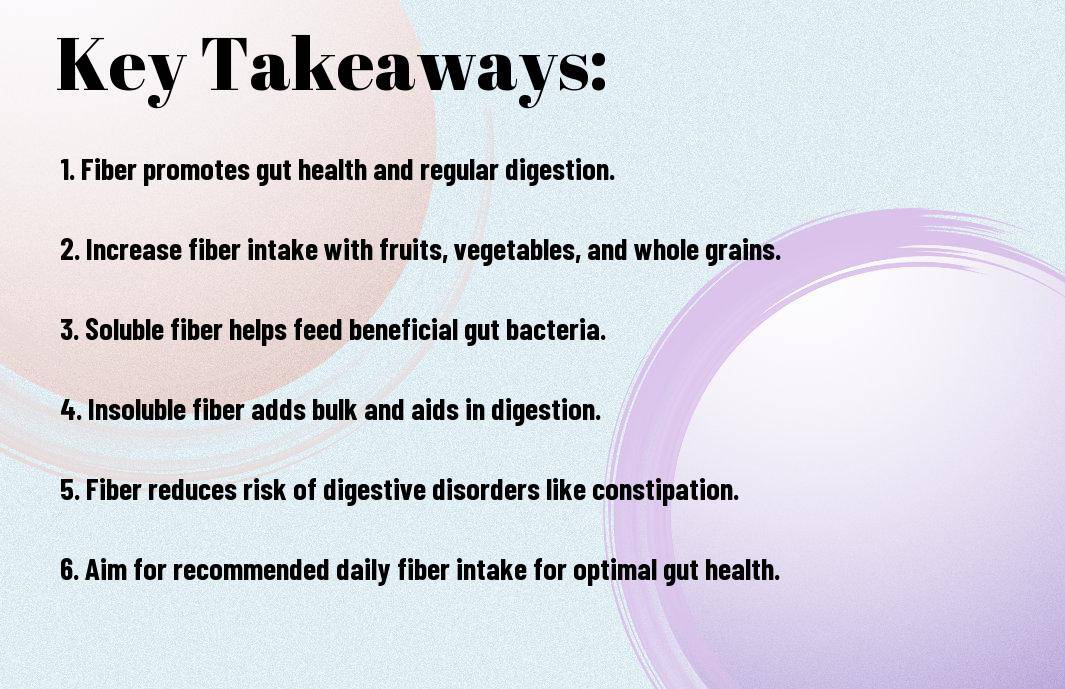
To truly understand the importance of fiber in our diets, I always refer to the Harvard Health Publishing article on Foods high in fiber: Boost your health with fiber-rich foods. Fiber is a crucial element for maintaining a healthy gut and overall well-being. It aids in digestion, helps prevent constipation, and supports a balanced microbiome.
An crucial component of plant-based foods, fiber is a type of carbohydrate that the body can’t digest. It passes through the digestive system intact, aiding in proper digestion and keeping things moving smoothly.
An adequate intake of fiber is necessary for optimal health. Fiber plays a vital role in regulating blood sugar levels, lowering cholesterol, and promoting a healthy weight. Additionally, fiber serves as food for the beneficial bacteria in our gut, contributing to a robust immune system and reducing the risk of chronic diseases.
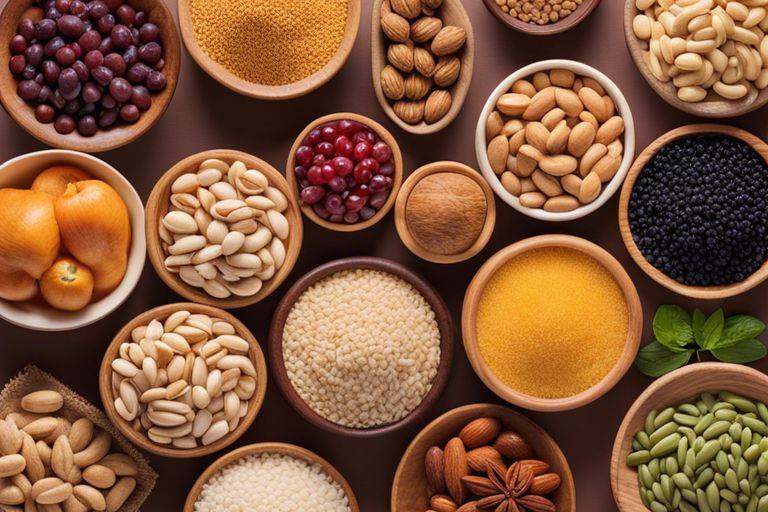
Any health-conscious individual knows that fiber is necessary for a well-functioning digestive system. Fiber, found in fruits, vegetables, whole grains, and legumes, plays a crucial role in maintaining gut health by promoting regular bowel movements and preventing constipation. Consuming an adequate amount of fiber can help regulate blood sugar levels and lower cholesterol, contributing to a healthier gut overall.
An integral part of gut health is the diverse community of gut bacteria that resides in our digestive system. These beneficial bacteria play a crucial role in breaking down fiber and producing short-chain fatty acids, which help nourish the cells lining the colon. They also help in the absorption of nutrients and protect against harmful pathogens. Maintaining a healthy balance of gut bacteria is necessary for a strong immune system and overall well-being.
For instance, an imbalance in gut bacteria, known as dysbiosis, can lead to various health issues such as inflammation, obesity, and autoimmune disorders. Therefore, incorporating fiber-rich foods in your diet not only supports the growth of good bacteria but also helps in maintaining a healthy gut environment.
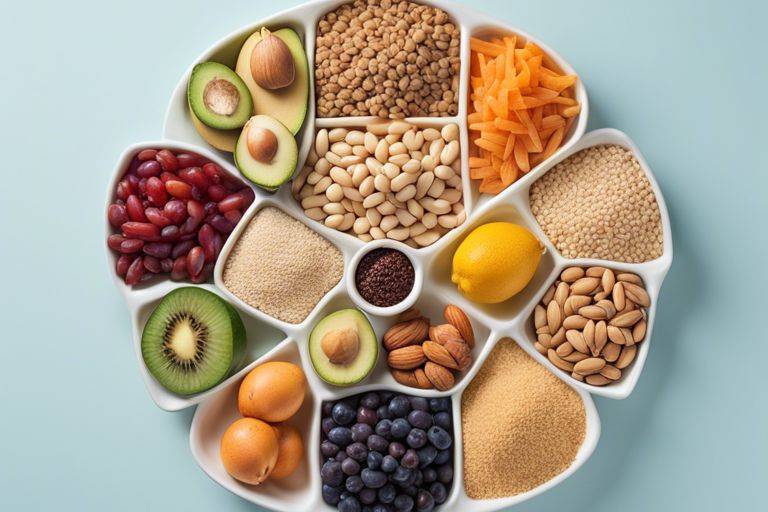
Once again, I turn to EatingWell’s article on 12 Fiber-Rich Foods to Help with Good Gut Bacteria for guidance on incorporating more fiber into my diet.
Fruits are not only colorful and delicious but also packed with necessary fiber. From raspberries to apples, these fiber-rich fruits can help improve your digestive health, keeping your gut happy and balanced.
An necessary part of a nutrient-rich diet, vegetables like broccoli, spinach, and carrots offer a diverse range of fiber content. Incorporating a variety of vegetables in your meals can benefit your gut flora and overall well-being.
One of the best sources of plant-based protein and fiber, legumes such as beans, lentils, and chickpeas are not only nutrient-dense but also great for digestive health. Including legumes in your diet can support healthy gut bacteria and promote gut function.
Fiber-rich whole grains like quinoa, oats, and brown rice are necessary for a balanced diet. These nutrient-packed grains not only provide fiber but also necessary vitamins and minerals to support overall health. Incorporating a variety of whole grains in your meals can benefit your gut health and well-being.
Now, I recommend incorporating leafy greens like spinach, kale, and Swiss chard into your meals. These vegetables are packed with fiber, which is crucial for a healthy gut.
To add variety to your diet, try including cruciferous vegetables such as broccoli, Brussels sprouts, and cauliflower. The cruciferous vegetables not only provide fiber but also contain important nutrients like vitamins A, C, and K.
Plus, cruciferous vegetables are known for their cancer-fighting properties. They contain compounds that have been shown to help prevent cancer and reduce inflammation in the body.
FiberRich Berries like strawberries, blueberries, and raspberries are not only delicious but also rich in fiber. Including a variety of berries in your diet can help improve digestion and promote a healthy gut.
Should you are looking for a satisfying and sweet treat that is also good for your gut, reach for a bowl of mixed berries as a snack or add them to your morning yogurt or oatmeal.
Seeds I suggest adding nuts like almonds, walnuts, and seeds such as chia and flaxseeds to your diet. These vegetables are excellent sources of fiber and healthy fats that can support gut health.
Vegetables Incorporating a variety of nuts and seeds into your meals can help you meet your daily fiber needs and provide crucial nutrients for overall health.
Not getting enough fiber in your diet can lead to irregular bowel movements, causing discomfort and potential health issues. Increasing fiber intake can help regulate your digestive system and promote healthy bowel movements.
Regular consumption of fiber-rich foods can assist in weight management by promoting a feeling of fullness, which may help control your appetite and prevent overeating.
Fiber-rich foods often have fewer calories per volume compared to low-fiber options, making them ideal for weight management.
Management of blood sugar levels is crucial for overall health. Fiber helps slow down the absorption of sugar, preventing spikes in blood glucose levels.
Including fiber-rich foods in your diet can contribute to better blood sugar control and may lower your risk of developing type 2 diabetes.
Cholesterol levels are a major concern for heart health. A high-fiber diet can help reduce LDL cholesterol, known as the “bad” cholesterol, which can lower your risk of heart disease and stroke.
This is especially important for individuals with a history of heart conditions or those looking to improve their cardiovascular health.
Better digestion is key when increasing fiber intake. Start by adding small amounts of fiber-rich foods to your meals and gradually increase the portions. This allows your gut to adjust and prevents digestive discomfort.
Intake of fiber-rich foods can be delicious with the right cooking techniques. Incorporate more fiber by choosing whole grains, legumes, fruits, and vegetables. Experiment with different recipes and cooking methods to keep meals exciting and nutritious.
After all, a variety of fiber-rich foods ensures you get a spectrum of nutrients and benefits for your gut.
Whole foods are always the best source of fiber as they provide a range of nutrients along with fiber. Supplements may lack the same nutritional value and can’t substitute for the benefits of a fiber-rich diet.
Presently, the importance of fiber-rich foods for a healthy gut cannot be overstated. By incorporating a variety of fruits, vegetables, whole grains, nuts, and seeds into your diet, you are not only supporting your digestive system but also benefiting your overall health and well-being. Keep in mind, a happy gut is key to a happy you!
A: Fiber-rich foods are foods that contain high amounts of dietary fiber, which is a type of indigestible carbohydrate that is important for gut health.
A: Fiber-rich foods help promote a healthy gut by feeding the beneficial bacteria in the gut, aiding in digestion, and preventing constipation.
A: Examples of fiber-rich foods include fruits, vegetables, whole grains, legumes, nuts, and seeds.
A: The recommended daily intake of fiber is around 25-30 grams for adults to support a healthy gut and digestive system.
A: Yes, fiber-rich foods can help with weight management as they can help you feel full and satisfied, reducing the tendency to overeat.
A: Yes, there are two main types of dietary fiber – soluble fiber, which dissolves in water, and insoluble fiber, which does not dissolve in water. Both types are important for gut health.
A: Some easy ways to include fiber-rich foods in your diet include starting your day with a high-fiber breakfast, snacking on fruits and nuts, adding vegetables to your meals, and choosing whole grain options. Remember to increase your fiber intake gradually to avoid digestive issues.